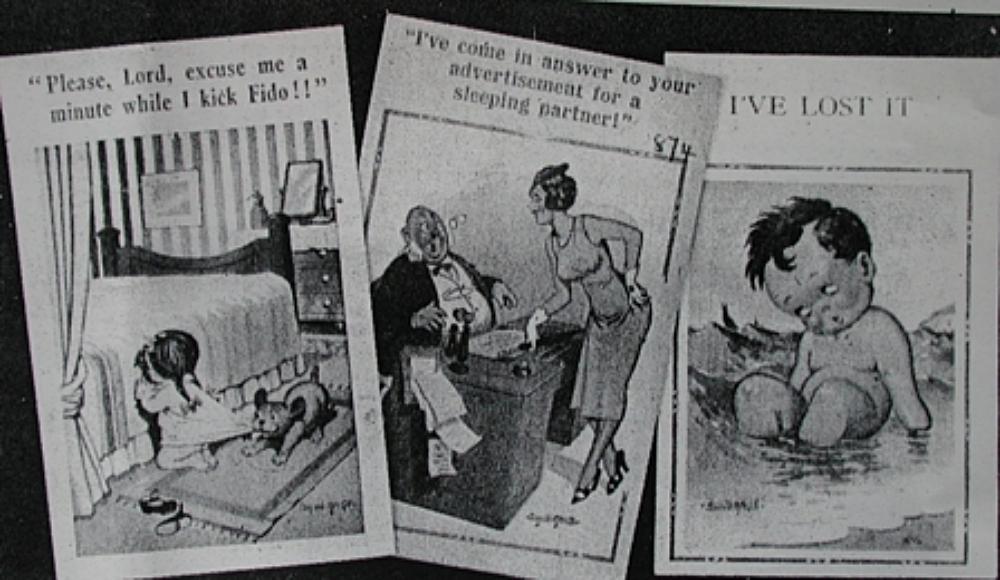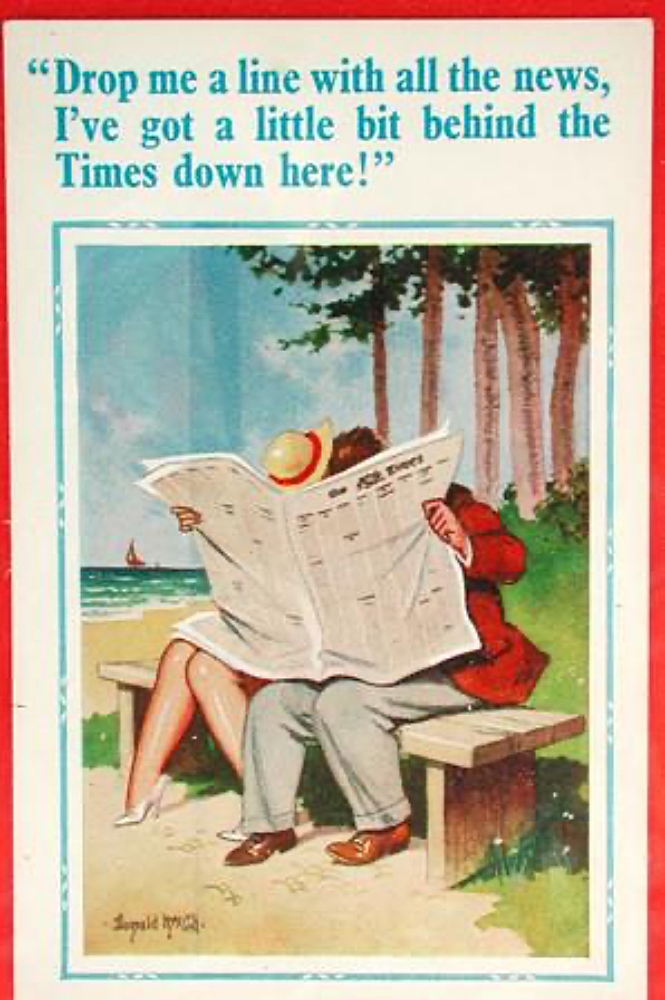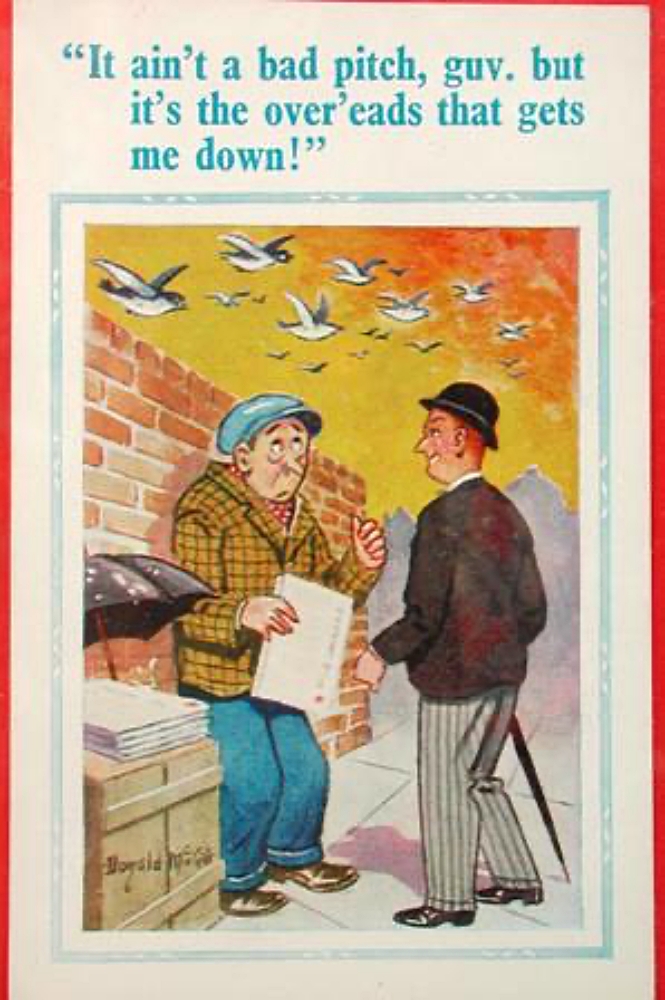You saucy thing, you!
DONALD McGill was born into a family with a high-ranking military background and a father who was strongly religious. He became the very essence of “a Victorian gentleman”. But while plodding a career course as a modest, young naval engineering draughtsman, he developed a very Victorian music hall sense of humour. Even so, as Queen Victoria’s long reign drew to its close more than 100 years ago, who could have imagined that this shy, unassuming and modest young man was about to create one of Britain’s most hilarious, much beloved, yet most controversial seaside industries – and be jailed at the height of his success?

IT was Donald McGill who so skilfully portrayed his Victorian music hall sense of humour, with deft strokes of pen and brush, and was responsible for drawing so many of those infamously cheeky, busty, seaside postcards between 1904 and 1962.
Millions were sold in British seaside resorts and found their way to the remotest corners of the British Empire.
Cheeky? Featuring busty seaside swimmers, overpowering matrons, hen-pecking diminutive husbands, frolicking young females with shapely figures and legs, he was still having the occasional card censored by local councils after World War Two.
“Disgusting” was how puritans at Eastbourne condemned the cards, before persuading the town council to ban several of them in the 1950s.
“Hilarious” was the description preferred by holidaymakers in other seaside towns, who posted them home, to the delight and glee of their recipients.
Not that success prevented the artist being bundled into prison at Lincoln. Or, in the 1950s, being fined £75, with £25 costs, under the Obscene Publications Act.

For McGill was the master of the double entendre – captions with two meanings.
Thousands of his cards were sold to holidaymakers visiting Worthing, Shoreham, Lancing and Littlehampton. One of the cards which Eastbourne banned depicted a little boy sitting naked in the waves, looking down and exclaiming: “I’ve lost it!”
McGill had a prolific output and is known to have drawn more than 10,000 different cards.
Records show that during the 58 years he was creating them, seaside resorts sold more than 400million McGill comic postcards. More than a million were sold annually in Blackpool alone.
Sadly, the artist stayed poor throughout his life. When he died at the age of 87, in 1962, he left just £735.6s.

It was his publisher, Joseph Asher, who made the fortune, paying Donald McGill only a few shillings for each of his original cards.
When Asher died in 1952, he left more than £40,000.
The McGill postcards have two strong local connections.
Firstly, Asher’s publishing company, D. Constance, moved from London to Littlehampton in the early 1960s.
Secondly, the remaining stocks of unused McGill postcards, 2,000 in all, plus 140 of the original McGill copper master-plates – all eminently collectable – were sold at Worthing by auction in 1990.